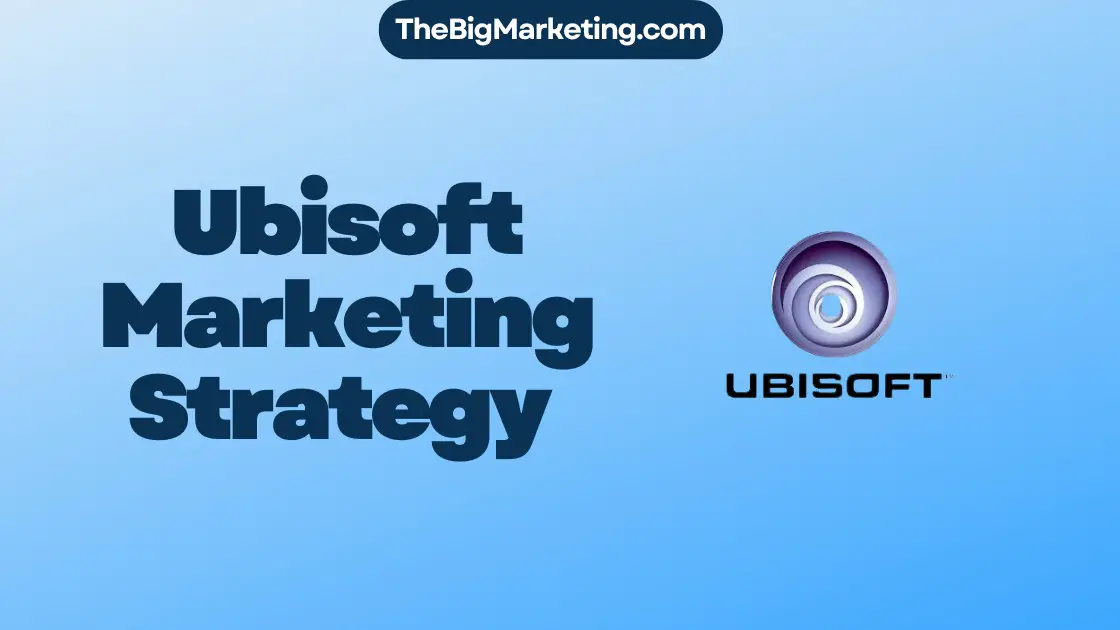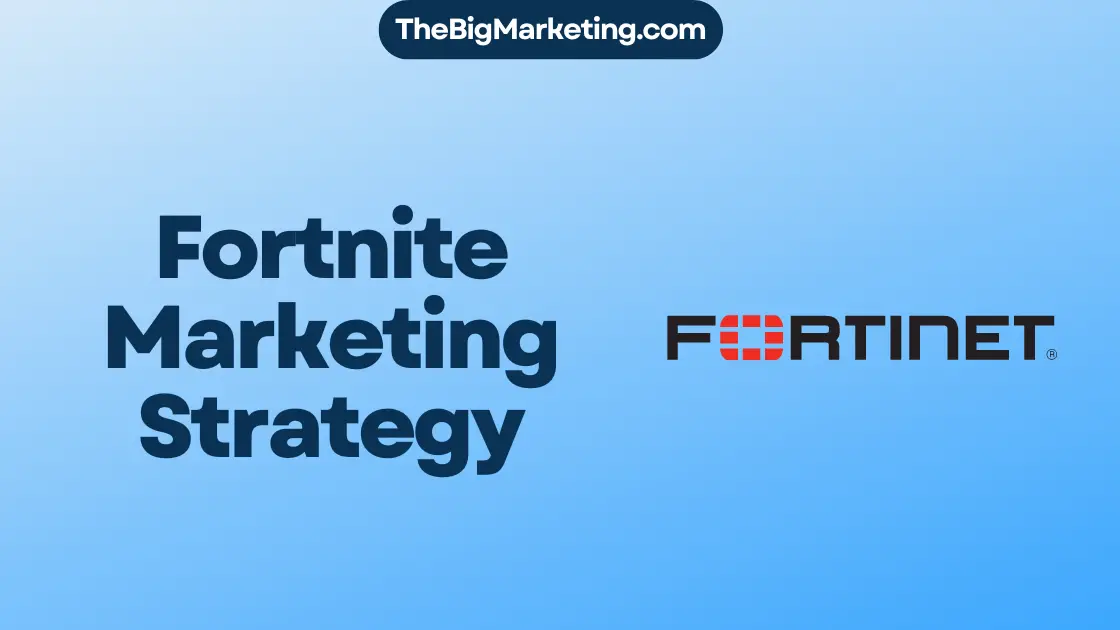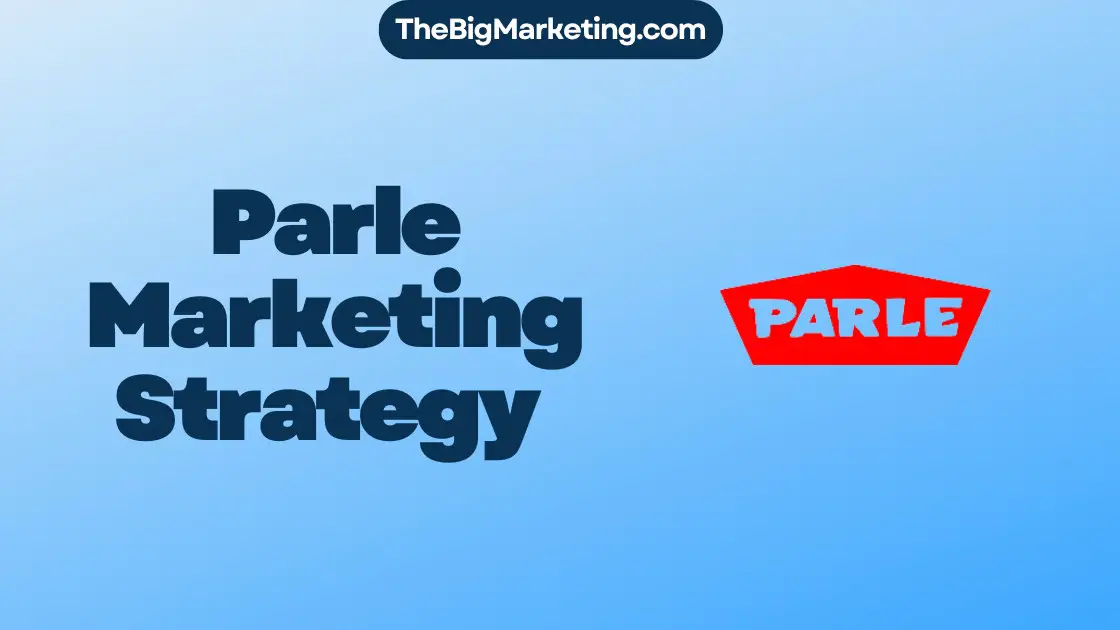Welcome to our in-depth case study on Holiday Inn’s marketing strategy for 2024. As a prominent player in the hospitality industry, Holiday Inn has consistently implemented innovative marketing approaches to maintain its position as a global leader. In this article, we will explore the hotel’s marketing plan, particularly its digital initiatives, and examine how Holiday Inn navigates the competitive landscape to attract and retain customers.
Key Takeaways:
- Holiday Inn’s marketing strategy plays a crucial role in its success within the hospitality industry.
- The brand focuses on digital marketing initiatives to reach its target audience effectively.
- Holiday Inn capitalizes on its global reputation to maintain market leadership.
- Customer-centric marketing strategies help Holiday Inn build long-lasting relationships with its guests.
- By understanding and targeting Millennials, Holiday Inn continues to expand its market share.
Importance of Marketing in the Hospitality Industry
Marketing is of utmost importance in the highly competitive hospitality industry. It serves as a powerful tool for brand promotion, enabling hotels to showcase their unique offerings and attract potential guests. Through effective digital marketing campaigns, hotels can reach their target audience with tailored messages and offers, ensuring maximum impact and customer engagement.
Target audience segmentation is another key aspect of marketing in the hospitality industry. By understanding the preferences and characteristics of different customer segments, hotels can create personalized marketing strategies that resonate with their target audience. This allows for more precise targeting, improved customer satisfaction, and ultimately, increased revenue generation.
Marketing in the hospitality industry involves careful consideration of various elements, such as pricing strategies, product offerings, and promotional activities. By thoroughly analyzing customer needs and market trends, marketing managers can make informed decisions that align with the hotel’s overall business objectives.
Moreover, marketing fosters customer engagement and loyalty. When hotels effectively communicate their value proposition through compelling marketing messages, they create a lasting impression on potential and existing guests. By maintaining a strong brand presence and consistently delivering high-quality experiences, hotels can cultivate long-term relationships and secure repeat business.
In summary, marketing plays a vital role in the success of hotels in the hospitality industry. It drives brand promotion, facilitates effective target audience segmentation, and supports revenue generation and customer engagement. By adopting innovative marketing strategies and staying attuned to customer needs, hotels can achieve a competitive edge and thrive in the dynamic hospitality landscape.
History of Holiday Inn
Holiday Inn, a renowned hotel brand, has a rich history that traces back to its humble beginnings in 1952. It was founded by Kemmons Wilson, an entrepreneur with a vision to provide affordable accommodations for families.
Wilson’s commitment to offering comfortable and convenient hotels resonated with travelers, and Holiday Inn quickly gained popularity. The brand’s dedication to providing quality service and value became the hallmark of its success.
Driven by Wilson’s ambition for growth, Holiday Inn expanded its hotel chain throughout America, establishing a dominant presence in the motel market. This impressive hotel chain growth set the standard for other competitors in the industry, solidifying Holiday Inn’s reputation as a leader in hospitality.
Through strategic planning and unwavering dedication, Holiday Inn’s evolution from a single motel to a renowned hotel brand is a testament to the vision of Kemmons Wilson and the brand’s commitment to delivering exceptional experiences to guests.
Definition of Marketing in the Hospitality Industry
Marketing management in the hospitality industry refers to the practical application of marketing techniques and the efficient management of a hotel’s marketing resources and activities. This entails analyzing customer needs, making strategic decisions, and implementing marketing campaigns to enhance the hotel’s overall success.
Effective marketing strategies in the hospitality industry play a pivotal role in creating value for customers and building long-lasting relationships. By understanding guest preferences, marketing managers can tailor their efforts to provide personalized experiences that resonate with their target audience.
Marketing management involves leveraging various channels, such as digital marketing, social media, and traditional advertising, to reach potential guests and effectively communicate the hotel’s unique selling points. It also includes monitoring and analyzing performance metrics to refine marketing strategies and optimize the allocation of marketing resources.
Furthermore, marketing management encompasses managing partnerships and collaborations with industry influencers, travel agencies, and online travel agencies to maximize the hotel’s visibility and attract more guests. It also involves conducting market research to stay abreast of evolving trends and consumer behaviors, enabling hotels to remain competitive in the dynamic hospitality industry.
To illustrate the practical application of marketing management in the hospitality industry, let’s examine a case study of a hotel implementing innovative marketing strategies to enhance its brand perception and drive revenue growth.
Case Study: XYZ Hotel’s Integrated Marketing Campaign
- Target Audience Segmentation: XYZ Hotel conducts thorough market research to identify and segment its target audience based on demographics, psychographics, and travel preferences. This enables the hotel to tailor its marketing messages and offerings to specific customer segments, enhancing the chances of attracting and retaining loyal guests.
- Branding and Positioning: XYZ Hotel invests in developing a strong brand identity that reflects its unique value proposition and resonates with its target audience. Through consistent branding across all customer touchpoints and effective positioning in the market, the hotel establishes a strong presence and differentiates itself from competitors.
- Online Presence and Digital Marketing: Recognizing the importance of digital channels in reaching and engaging with potential guests, XYZ Hotel implements a comprehensive digital marketing strategy. This includes optimizing its website for search engines, leveraging social media platforms to showcase its offerings and interact with customers, and utilizing targeted online advertising campaigns.
- Customer Relationship Management: XYZ Hotel employs customer relationship management (CRM) systems to track guest preferences, behaviors, and feedback. This data-driven approach allows the hotel to personalize guest experiences, offer relevant promotions, and maintain strong relationships with its loyal customers.
- Partnerships and Collaborations: XYZ Hotel forms partnerships and collaborations with complementary businesses, such as local attractions, airlines, and event organizers. These strategic alliances enable the hotel to extend its reach and tap into new customer segments while providing added value to guests through exclusive offers and experiences.
By implementing a targeted and integrated marketing campaign, XYZ Hotel successfully increases brand awareness, attracts a diverse range of guests, and achieves sustainable business growth. This case study highlights the practical application of marketing management in the hospitality industry and demonstrates the importance of strategic marketing decisions and efficient resource allocation.
Investigating Holiday Inn’s Marketing Strategies
When it comes to maintaining market leadership and popularity, Holiday Inn’s marketing strategies are worth investigating. The brand’s management team understands the importance of effective brand positioning and employs leadership qualities to keep the brand ahead in the highly competitive market. Through the use of the 4P’s of marketing (product, price, place, and promotion), Holiday Inn drives business growth and maintains a strong market presence.
Holiday Inn’s marketing strategies focus on positioning the brand as a leader in the hospitality industry. By emphasizing its unique value proposition and showcasing its commitment to customer satisfaction, Holiday Inn differentiates itself from competitors and establishes a strong brand identity. The brand understands the importance of delivering high-quality products and services that meet the evolving needs of its target audience.
Market leadership requires continuous innovation and adaptation. Holiday Inn invests in research and development to stay ahead of changing market trends and consumer preferences. By leveraging consumer insights and data-driven decision-making, the brand remains relevant and responsive to the ever-changing needs of its customers.
Another key aspect of Holiday Inn’s marketing strategies is the deliberate selection of strategic locations for its hotels. By carefully identifying and targeting high-demand areas, the brand ensures maximum visibility and accessibility, attracting a diverse range of customers. Additionally, Holiday Inn employs effective pricing strategies that strike a balance between value for money and profitability, catering to various customer segments while maintaining a competitive edge in the market.
Effective promotion is also a critical component of Holiday Inn’s marketing strategies. The brand leverages various promotional channels, including traditional media, digital marketing, and social media platforms, to reach and engage its target audience. By creating compelling and relevant content that resonates with customers, Holiday Inn builds awareness, generates interest, and fosters brand loyalty among its customer base.
In conclusion, Holiday Inn’s marketing strategies encompass effective brand positioning, market leadership, and a commitment to delivering value to its customers. By continuously evaluating and adapting its marketing approach, Holiday Inn remains at the forefront of the hospitality industry, setting an example for other brands aspiring to achieve similar success.
Evolution of Holiday Inn’s Marketing Approach
Over the years, Holiday Inn has continuously adapted its marketing approach to keep up with the ever-changing consumer behavior and preferences. One of the significant milestones in their marketing journey was the introduction of the Stay Smart campaign, which played a vital role in increasing brand awareness and connecting with their target audience.
The Stay Smart campaign featured catchy taglines and humorous TV spots that resonated with consumers, effectively promoting the brand and its value proposition. The campaign successfully showcased the comfort and convenience that Holiday Inn offers while adding a touch of humor to capture the attention of the audience.
In recent years, Holiday Inn has recognized the growing importance of digital and social media marketing in engaging with their target audience. The brand has leveraged platforms like LinkedIn to connect with professionals, business travelers, and decision-makers. By utilizing these channels effectively, Holiday Inn has been able to expand its reach and maximize brand exposure.
Furthermore, Holiday Inn has collaborated with actor and comedian Rob Riggle to create engaging online videos. Through these videos, the brand has successfully communicated its key messages, highlighting the unique features and benefits of their hotels. Rob Riggle’s popularity and comedic talent have helped captivate the audience, making the marketing campaigns more memorable and impactful.
This strategic shift towards digital and social media marketing has allowed Holiday Inn to establish a strong online presence and effectively engage with their target audience. By utilizing the power of these platforms, they have been able to create a two-way communication channel, encouraging feedback, and building stronger relationships with their customers.
Overall, Holiday Inn’s evolution in its marketing approach, from the iconic Stay Smart campaign to the utilization of digital and social media marketing, showcases their commitment to staying relevant and effectively connecting with their target audience. By embracing new marketing trends and leveraging influential partnerships, Holiday Inn continues to thrive in the competitive hospitality industry.
Setting Realistic Marketing Objectives
When it comes to driving business growth and achieving success in the competitive hospitality industry, setting realistic marketing objectives is crucial. Holiday Inn recognizes the importance of aligning its corporate objectives with its marketing goals.
Before formulating marketing objectives, a thorough analysis of the marketing environment is conducted, taking into account customer preferences and market trends. This analysis allows Holiday Inn to identify opportunities and challenges and determine the most effective strategies to pursue.
The written marketing plan incorporates clear and measurable objectives that guide the decision-making process. These objectives serve as benchmarks for evaluating the success of marketing initiatives and provide a roadmap for future marketing efforts.
However, it is essential to differentiate between objectives and strategies. Objectives outline what the marketing team aims to achieve, while strategies define how to achieve those objectives. By maintaining this distinction, Holiday Inn ensures that its marketing plan remains flexible and adaptable to changing market dynamics.
Strategic planning plays a vital role in shaping marketing objectives. Strategic planning involves defining the long-term vision for the brand, identifying target markets, and determining the key messages and value propositions to convey to customers. By aligning marketing objectives with strategic goals, Holiday Inn can focus its resources and efforts on driving the brand’s growth and success.
Benefits of Setting Realistic Marketing Objectives:
- Provides clarity and direction for marketing efforts
- Helps prioritize marketing activities based on their potential impact
- Enables the evaluation of marketing performance and ROI
- Facilitates effective resource allocation and budgeting
- Supports the alignment of marketing initiatives with the overall organizational strategy
By setting realistic marketing objectives, Holiday Inn maintains a strategic focus, drives revenue generation, and strengthens its market position in the hospitality industry.
| Benefits of Setting Realistic Marketing Objectives: |
|---|
| Provides clarity and direction for marketing efforts |
| Helps prioritize marketing activities based on their potential impact |
| Enables the evaluation of marketing performance and ROI |
| Facilitates effective resource allocation and budgeting |
| Supports the alignment of marketing initiatives with the overall organizational strategy |
The Brand Persona of Holiday Inn
Holiday Inn’s brand persona is a reflection of its strong brand identity and core values. By understanding and embodying the essence of the brand persona, Holiday Inn effectively positions itself in the market and captures the attention and loyalty of its target audience.
At the heart of Holiday Inn’s brand persona are its core values, which guide every aspect of its operations and customer interactions. These values include:
- Commitment to excellence
- Providing exceptional service
- Creating memorable experiences
- Delivering value to customers
These values form the foundation of Holiday Inn’s brand identity, shaping its reputation and setting it apart from competitors in the hospitality industry. They create a sense of trust and reliability, assuring customers that they can expect consistent quality and service when staying at a Holiday Inn property.
Furthermore, Holiday Inn’s brand persona exhibits personality traits such as:
- Approachability
- Warmth
- Friendliness
- Professionalism
These traits resonate with customers and make them feel welcome and comfortable during their stay. The brand persona reflects the brand’s commitment to providing a home-away-from-home experience for both business and leisure travelers.
By incorporating these values and personality traits into its marketing and customer communications, Holiday Inn effectively portrays its brand persona and connects with its target audience on an emotional level. This strong brand persona helps differentiate Holiday Inn from its competitors and establishes a deep sense of loyalty and affinity among its customers.
The image above visually represents the essence and identity of Holiday Inn, further reinforcing its brand persona in the minds of consumers.
Targeting Millennials Through Effective Digital Marketing
Holiday Inn recognizes the importance of reaching and engaging with Millennial travelers, a growing segment of smart travelers who value convenience, technology, and personalized experiences. To effectively connect with this audience, Holiday Inn has shifted its marketing efforts to digital platforms and social media, where Millennials spend a significant amount of their time.
Social Media Marketing and Millennial Engagement
Social media marketing plays a vital role in capturing the attention of Millennials. Holiday Inn leverages platforms such as Facebook, Instagram, and Twitter to create engaging and interactive content that resonates with this tech-savvy audience. By utilizing targeted advertisements, engaging storytelling, and user-generated content, Holiday Inn ensures its brand remains top-of-mind for Millennial travelers.
The Power of Online Videos
One of the most effective digital marketing strategies for targeting Millennials is the use of online videos. Holiday Inn understands that Millennials consume a significant amount of video content online and are more likely to engage with brands that use videos as part of their marketing efforts.
Holiday Inn has collaborated with the popular actor and comedian Rob Riggle to create innovative and entertaining online videos. These videos not only highlight the unique experiences and amenities offered by Holiday Inn but also resonate with Millennials’ sense of humor and desire for authenticity.
The use of online videos featuring Rob Riggle has been highly successful in increasing brand awareness and consideration among the Millennial target audience. These videos have generated millions of shares on social media platforms, significantly expanding the online reach of Holiday Inn.
Engaging Millennial Travelers Through Influencer Marketing
Another effective strategy employed by Holiday Inn to target Millennials is influencer marketing. By partnering with popular travel and lifestyle influencers, Holiday Inn can tap into the loyal fan bases of these individuals and align its brand with their trusted recommendations.
These influencers create content featuring their experiences at Holiday Inn properties, showcasing the hotel’s amenities, unique offerings, and exceptional customer service. By leveraging the influence and reach of these influencers, Holiday Inn can capture the attention of Millennial travelers and influence their travel decisions.
Delivering Personalized Experiences Through Technology
Millennials value personalized experiences, and Holiday Inn understands this preference. The hotel brand utilizes technology to offer personalized recommendations and enhance the guest experience. From mobile check-ins to tailored offers based on individual preferences, Holiday Inn leverages technology to deliver a seamless and customized stay for Millennials.
Benefits of Digital Marketing for Millennial Engagement
| Benefits | Description |
|---|---|
| Increased Brand Awareness | Digital marketing allows Holiday Inn to reach a wider audience of Millennial travelers, increasing brand visibility and awareness of its offerings. |
| Higher Engagement Levels | Through interactive content and targeted advertisements, Holiday Inn can drive higher engagement levels among Millennials, fostering a deeper connection with the brand. |
| Enhanced Customer Insights | Digital marketing provides valuable data and insights into the preferences, behaviors, and needs of Millennial travelers, enabling Holiday Inn to tailor its offerings to meet their expectations. |
| Cost-Effective Advertising | Compared to traditional forms of advertising, digital marketing offers cost-effective solutions that allow Holiday Inn to allocate its budget more efficiently and achieve higher returns on investment. |
By leveraging the power of digital marketing, social media platforms, and online videos, Holiday Inn effectively targets Millennials and delivers personalized experiences that resonate with this generation of travelers. As the hospitality industry continues to evolve, Holiday Inn remains at the forefront of engaging Millennial travelers through innovative and tailored digital marketing strategies.
The Marketing Success of Holiday Inn Express
The Stay Smart campaign has played a pivotal role in the marketing success of Holiday Inn Express. By embracing digital and social media advertising, particularly on platforms like LinkedIn, Holiday Inn Express has effectively engaged its target audience. It has utilized the power of storytelling through comedic videos featuring Rob Riggle to increase brand awareness and preference. The success of Holiday Inn Express’ digital and social media advertising campaigns has exceeded engagement rate benchmarks on LinkedIn.
“The Stay Smart campaign has been a game-changer for Holiday Inn Express. It has allowed us to connect with our audience on a deeper level through digital and social media advertising,” says Sarah Anderson, the Marketing Director of Holiday Inn Express. “By leveraging platforms like LinkedIn, we have been able to reach professionals looking for convenient and comfortable accommodations during their business trips.”
Engaging Target Audience with Comedic Videos
One of the standout features of Holiday Inn Express’ digital and social media advertising strategy is the use of comedic videos. By collaborating with actor and comedian Rob Riggle, the brand has created entertaining content that resonates with its target audience. These videos highlight the brand’s commitment to providing a smart and enjoyable hotel experience.
The comedic videos featuring Rob Riggle have not only increased brand awareness but have also generated significant engagement on LinkedIn. The unique combination of humor and informative content has captured the attention of LinkedIn users, leading to increased consideration and preference for Holiday Inn Express.
Elevating Brand Awareness on LinkedIn
LinkedIn has emerged as a powerful platform for digital advertising, particularly in the professional sphere. Holiday Inn Express recognized the potential of LinkedIn to target professionals who frequently travel for business. By utilizing LinkedIn’s advanced targeting capabilities, the brand has been able to showcase its value proposition to the right audience.
The Stay Smart campaign on LinkedIn has enabled Holiday Inn Express to differentiate itself from competitors and position itself as the smart choice for business travelers. With a combination of engaging video content, compelling visuals, and precise targeting, the brand has successfully raised its brand awareness among LinkedIn users.
Surpassing Engagement Rate Benchmarks on LinkedIn
Holiday Inn Express’ digital and social media advertising strategy on LinkedIn has achieved remarkable results, surpassing engagement rate benchmarks. The comedic videos featuring Rob Riggle have sparked conversations, shares, and interactions, translating into meaningful engagement for the brand.
“We are thrilled with the results we have achieved through our digital and social media advertising efforts on LinkedIn,” says Sarah Anderson. “Not only have we surpassed benchmarks for engagement rates, but we have also witnessed a significant increase in bookings from LinkedIn users. It’s a testament to the effectiveness of our strategic approach.”
Holiday Inn Express’ Digital and Social Media Advertising Success on LinkedIn
| Metrics | Performance |
|---|---|
| Brand Awareness | Significant increase |
| Engagement Rate | Above benchmarks |
| Bookings | Notably higher |
Case Studies in Marketing Strategy
To gain further insights into effective marketing strategies, we can examine various case studies that focus on brand positioning and personal branding. These case studies offer valuable lessons and inspiration for marketers looking to enhance their marketing efforts and achieve success in their respective industries.
Case studies provide real-world examples of marketing campaigns and strategies implemented by companies and individuals. By analyzing these case studies, marketers can identify successful tactics, understand the key principles behind them, and adapt them to their own marketing plans.
Brand Positioning Case Studies
Brand positioning plays a critical role in shaping a company’s identity and differentiating it from competitors. By studying brand positioning case studies, marketers can learn how successful brands have created a unique position in the market and effectively communicated their value proposition to consumers. These case studies offer valuable insights into the strategies, messaging, and creative approaches used to establish a strong brand position.
Personal Brand Case Studies
In today’s digital age, personal branding has become increasingly important. Personal brand case studies provide examples of individuals who have effectively built and leveraged their personal brands to achieve professional success. By studying these case studies, marketers can gain insights into the strategies, platforms, and tactics used to create a compelling personal brand that resonates with audiences.
Whether it’s through innovative marketing campaigns, strategic brand positioning, or the cultivation of a strong personal brand, case studies serve as a valuable resource for marketers seeking inspiration and guidance. By learning from successful examples, marketers can refine their strategies, improve their brand positioning, and drive impactful marketing initiatives.
Conclusion
The marketing strategy employed by Holiday Inn serves as a compelling case study for other players in the hospitality industry. By continuously evolving their marketing approach, staying true to their brand values, and effectively targeting their audience, Holiday Inn has maintained its leadership position in the market. This success can be attributed to the power of strategic marketing in driving business growth and maintaining a competitive advantage in the dynamic hospitality industry.
With a rich history and a strong brand identity, Holiday Inn has successfully captured the attention and loyalty of travelers worldwide. Through careful analysis of customer needs and strategic decision-making, the company has implemented marketing campaigns that resonate with its target audience, ensuring continued brand success.
As Holiday Inn’s marketing strategies continue to adapt to changing consumer behavior, digital and social media marketing campaigns, such as the popular Stay Smart campaign featuring Rob Riggle, have played a crucial role in engaging and connecting with customers. By leveraging online platforms and embracing innovative marketing techniques, Holiday Inn stays ahead of the competition and remains a preferred choice for travelers seeking comfort, convenience, and value.







